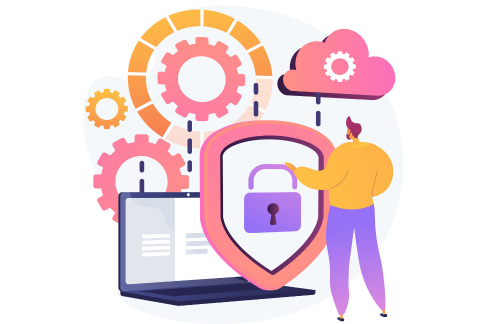The world has fully embraced the cloud. From the smallest startups to the largest enterprises, the massive demand for elastic computing, global reach, and cost efficiency has created an unprecedented need for skilled cloud professionals. This shift has also created a challenge for businesses: security is the greatest concern in the cloud frontier.
A common mistake for those starting out is to jump straight into a platform’s console (like AWS or Azure) without understanding the bedrock of digital defense.
However, the most successful entry-level Cloud Support Specialists and Administrators start their cloud computing courses online by focusing on foundational security. Without security, there is no sustainable cloud career.
The Technician’s Role in the Shared Responsibility Model
Every single cloud environment—whether you choose AWS, Azure, or Google Cloud—operates under an important concept called the Shared Responsibility Model. This framework clearly divides the security duties between the provider and the customer, and it dictates the daily life of a cloud professional:
- The Cloud Provider is responsible for the Security OF the Cloud. This means protecting the physical hardware, data centers, and global infrastructure.
- The Customer/Engineer is responsible for the Security IN the Cloud. This is everything you put, build, and configure: the data, the virtual machines (VMs), the operating system patching, and, critically, user access policies.
For the person taking cloud computing courses, this distinction is everything. Your job as a professional is entirely centered on managing the customer’s responsibilities. You cannot effectively secure an environment you don’t fundamentally understand. This is why skills like access control, basic network security, and data encryption principles are just as important as knowing how to spin up a virtual server.
Building Securely: From IT Fundamentals Up
The transition to cloud computing often tempts learners to skip traditional IT coursework. And this is a massive mistake. The truly best cloud computing courses will ensure that foundational knowledge is covered before specialization begins.
- IT Fundamentals (ITF+): This ensures you understand the concepts of storage, networking, and operating systems at a deep level. If you don’t know the basics of a firewall or how TCP/IP works, you are guaranteed to misconfigure a cloud networking resource, leaving a vulnerability for hackers to exploit.
- Computer Security Fundamentals: This training provides the security-first mindset. When you provision a new resource, your first thought should not be “How fast can I get this running?” but “How can I ensure only the required users can access this?” This approach reinforces the principle of Least Privilege, a tenet of modern security.
Learning to implement policy, audit activity logs, and maintain compliance (all covered in Cloud Essentials and security courses) prevents dangerous knowledge gaps. You will not be asked to build a perimeter firewall, but you will be asked to ensure that a storage bucket isn’t accidentally open to the public internet—one of the most common and disastrous cloud misconfigurations.
And gaining this security-first mindset requires dedicated instruction that teaches security principles from the very first lesson. If you are seeking quality cloud computing courses that build your career on an unshakeable foundation of IT and security fundamentals, a focused online program is your best starting point.
Future-Proofing Your Career
The market is no longer hiring just “cloud technicians”; it is hiring secure cloud administrators. A professional who can demonstrate they know how to build a scalable environment and maintain its security and integrity is exponentially more valuable than one who only knows the deployment commands.
Choosing a cloud computing course online that prioritizes security and general IT fundamentals, you are not just learning to use a vendor’s platform; you are learning to solve a business’s biggest pain point: risk.
And you know what’s the best benefit for you? This integration of knowledge makes these skills transferable. It means you’ll be able to move between different platforms down the road without starting from scratch.



